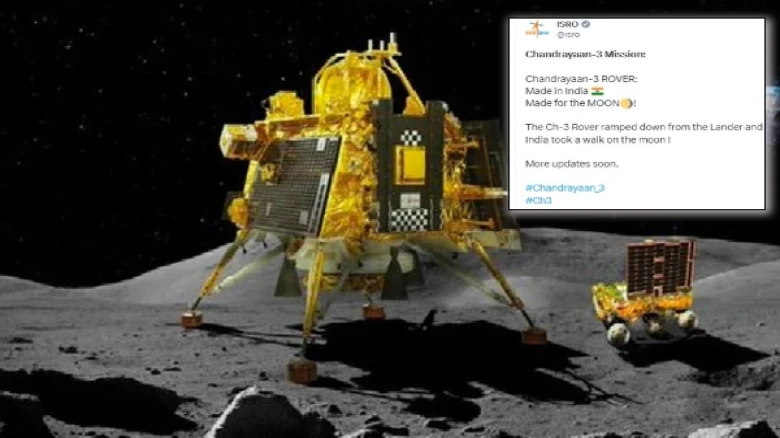Sports

A lander carrying a rover splashed down on the lunar surface, eliciting screams and congratulations from space...
Digital Desk: Great achievement and a historic day as India is now the fourth country to land on the Moon, and the first to do so near the Moon's south pole.
As part of the country's expanding expertise in space and technology, India successfully landed a spacecraft near the Moon's south pole on Wednesday, an unknown zone that scientists say could harbour vital quantities of frozen water and other elements.
At 6:04 p.m. local time, a lander carrying a rover splashed down on the lunar surface, eliciting screams and congratulations from space experts in the southern Indian city of Bengaluru.
Following a failed effort nearly four years ago, India became the first country to land near the little-explored southern pole region, joining the United States, the Soviet Union, and China in achieving a moon landing.
ISRO taking their joy to X (formerly Twitter) said, "India took a walk on the Moon."
Nambi Narayanan, a former space scientist with the Indian Space Research Organisation (ISRO), claimed after the successful landing of the 'Vikram' lander on the lunar South Pole that the lessons learnt from the loss of Chandrayaan-2 contributed to the success of India's third lunar mission. "Every failure of Chandrayaan-2 was addressed,"
Narayanan said "of the scientists involved with the Chandrayaan-3 programme. It could be a satellite issue, a stability issue, or an additional need issue. Everything was addressed and corrected."
However, Chandrayaan-3 was launched on a weaker rocket and had to orbit the Earth numerous times before beginning its month-long voyage. The cost of Chandrayaan-3 is $74.6 million, which is significantly less than the cost of many other missions and a testament to India's thrifty space engineering.
ISRO after the success of Mission Chandrayaan-3 has already been working on future plans, it says by next year, ISRO plans to conduct a three-day crewed mission into Earth's orbit. It also intends to launch a cooperative expedition to the Moon with Japan by 2025, as well as an orbital mission to Venus within the next two years.
Leave A Comment